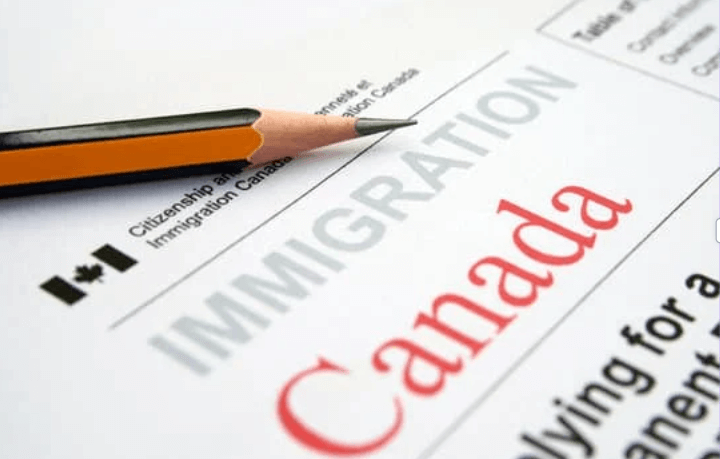Advertisements
With its welcoming populace, breathtaking landscapes, and strong economy, it’s no surprise that Canada draws a sizable influx of foreign immigrants each year. Canada is a popular destination for those seeking a fresh start because of its reputation for embracing immigrants. It’s a fantastic opportunity to get your name added to the list of anticipated 1.2 million immigrants in Canada by 2025, as the government has stated.
If you intend to immigrate to Canada by 2024, there are a few strategies to simplify the sometimes difficult and drawn-out process of moving to a new nation. This is a thorough reference to the top most commonest routes to Canada in 2024 for immigration.
-
Express Entry
Let’s start by discussing the Express Entry Program, which is essentially the ticket to Canada for skilled professionals. This program’s goal is to accept those who have the specific capabilities that employers are looking for. The benefits? faster processing times—six months on average.
The Federal Skilled Worker Program, Federal Skilled Trades Program, and Canadian Experience Class are just a few of the immigration programs for which the Canadian government handles applications through the Express Entry system. If you believe you’re a suitable fit, get ready with the necessary requirements, which include work experience, a certain degree of education, and language fluency (in either French or English). The true challenge then begins with establishing an express entry profile and joining the candidate pool. A faster Invitation to Apply (ITA) from Canada is associated with higher points on the Comprehensive Ranking System. Doesn’t that seem like a competition you want to win?
-
Provincial Nominee Program (PNP)
Next on the list are the Provincial Nominee Programs (PNPs). With the exception of Quebec, which has its own system, every province and territory in Canada offers them as stand-alone immigration programs. An interesting feature if you have a fondness for a particular province!
In order to be eligible, you must first receive a nomination from a province (related to your skills or job offer), following which you can submit a federal immigration application. But keep in mind that every Canadian province has an immigration program of its own, which enables them to bring in people who specifically match the need of the labor market in their area. These initiatives aim to assist newcomers in relocating to a particular area of Canada.
Different provinces have different requirements, so it can be helpful to carefully research what is needed in your target province to avoid any future snags. You must be able to meet the requirements for a Provincial Nominee Program in terms of education, employment experience, and skill sets in order to support the province’s economy. Additionally, you have to fulfill the program’s particular requirements, which can differ from province to province.
-
Family Sponsorship
Family is what matters most and Canada’s Family Sponsorship program serves as evidence of this. Permanent residents and Canadian citizens may sponsor their parents, grandparents, spouses, dependent children, and even their spouses through various immigration processes.
This program is your opportunity if you have family in Canada who are prepared to sponsor you. It’s not all sunshine and daisies, though; the sponsor must prove that they have the resources to support the new family member or family members. Therefore, to prevent any hiccups on the immigration road, make sure your sponsor is adequately equipped for this obligation.
Your spouse, common-law partner, parent, grandparent, child, or other family members who are citizens or permanent residents of Canada may be able to sponsor your entry into the country. It is imperative that the sponsor provide proof of their financial stability and guarantee that you won’t be dependent on government aid.
Advertisements
-
Study Permit
You might as well seize the chance of using a study permit to further your education and obtain permanent residency. This particular scholarship is available to international students in Canada. First, you obtain a study permission (as long as you have an acceptance letter from a recognized Canadian educational institution). Also, with programs like the Post-Graduation Work Permit (PGWP), you will be ready to make the switch to permanent residence status.
You can also be eligible for a study permit if you are accepted to a Canadian university. This would enable you to reside and pursue your studies in Canada for the length of your program. A letter of acceptance from an accredited school, evidence that you have enough money for living expenses and tuition, and a spotless criminal record are requirements. You could be eligible to apply for a work permit and subsequently permanent residency after completing your courses.
-
Work Permit
Canada allows immigration with work permits, which expands on the conventional notion of relocating for assistance. There is a drawback though. An employer in Canada must provide you a legitimate employment offer, after which they will obtain a Labour Market Impact Assessment (LMIA). You could be able to obtain your dream employment offer by using foreign job fairs, networking, or perusing Canada’s job bank. The prospect of eventually gaining permanent residency is not absurd.
You can be qualified for a work visa if a Canadian employer has extended a job offer to you. This permit would let you reside and work in Canada for a predetermined amount of time. You must meet the specified employment qualifications, have a legitimate job offer from a Canadian company, and be eligible for a work permit.
-
Temporary Foreign Worker Program
In order to meet Canada’s labor needs, foreign workers can apply for temporary employment through the Temporary Foreign Worker Program. Many can convert from temporary to permanent status after assimilating into Canadian workplace culture. You will also ensure that your employer needs to get an LMIA certifying that no permanent resident or citizen of Canada was available to fill the post.
However, you might be able to immigrate under this method if you are self-employed and can prove that you have the knowledge and abilities necessary to work for yourself in Canada. You need to have relevant experience managing a farm or participating in cultural or sporting events in order to be eligible for the Self-Employed Persons Program.
Additionally, you need to have the money necessary to start your business in Canada and pay your bills.
-
Rural and Northern Immigration Pilot
The Rural and Northern Immigration Pilot Program is similar to the Atlantic Immigration Pilot Program in that it concentrates on particular rural and northern towns. To get things started, you need a full-time job offer from one of the participating areas. In order to assist immigrants in relocating to smaller towns in the provinces of British Columbia, Manitoba, Ontario, and Saskatchewan, the Rural and Northern Immigration Pilot was created.
To qualify for the Rural and Northern Immigration Pilot, you need to fulfill the program’s standards and obtain a work offer from a designated employer in a participating community. You also need to integrate into the participating community’s labor market and community by possessing the necessary education and skill sets. Make sure, that living in the country fits your lifestyle, as moving from the bustle of the city to the quiet of the countryside can be somewhat of a culture shock.
-
Business Immigration
If you are a business owner or manager and qualify for a federal or provincial business immigration program, you may be able to relocate permanently to Canada through this route. Through corporate activities, Canada hopes to welcome 5,000 newcomers by 2024. These initiatives usually require a large financial commitment. Depending on the program you are interested in, there are different fees.
- Start-up visa: For entrepreneurs, the Start-Up Visa is one of the most popular entry points into Canada. You need to have a viable business or business idea in order to apply. After that, you will also need the backing of a specific venture capital fund, angel investor group, or business incubator.
- Self-Employed Programs:Those with prior experience working for themselves are also eligible for the federal self-employed program. Moreover, candidates should be capable of and eager to contribute to Canada’s artistic, cultural, or sports communities..There is also a scheme for self-employment in Quebec. Participants in this program create their own jobs through running a business or practicing a vocation.
Conclusion
Relocating to a new nation may be both exhilarating and daunting. As such, keep in mind that this is a marathon rather than a sprint. If you put in the necessary time, research, and attention to detail, you should eventually be able to enjoy all that is uniquely Canadian. I wish you well as you pursue immigration!
Advertisements






